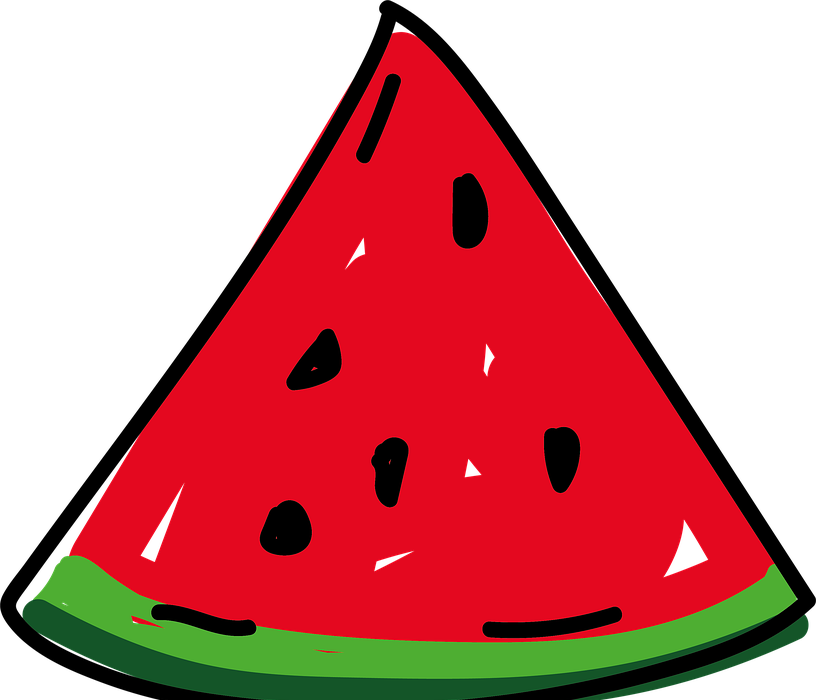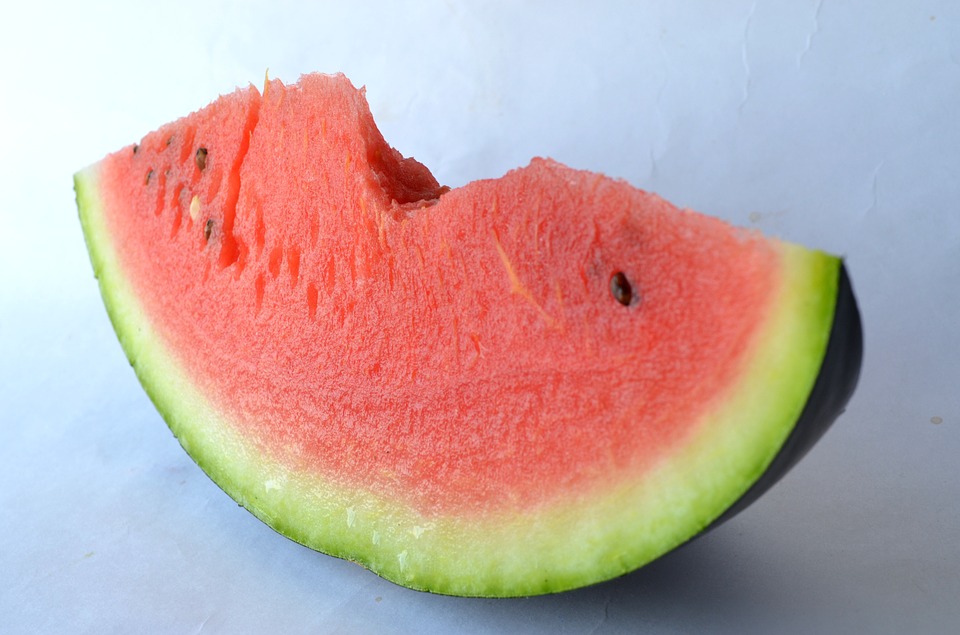Watermelon is a summer favourite enjoyed by humans and many animals. But what about our furry friends, rabbits? Can they share in the watermelon goodness, including the rind? This article dives deep into the world of watermelon rind and its potential effects on rabbit health. We'll explore its nutritional value, potential risks, safe feeding practices, and address common questions regarding this unique treat.
Part 1: The Nutritional Profile of Watermelon Rind

1.1. A Treasure Trove of Vitamins and Minerals
Watermelon rind, often discarded as waste, is surprisingly rich in various nutrients that can benefit rabbit health. Let's break down its nutritional profile:
- Vitamin C: An essential antioxidant that helps bolster the immune system, protecting rabbits from infections and diseases.
- Vitamin A: Crucial for maintaining healthy vision, cell growth, and immune function.
- Potassium: Plays a vital role in regulating blood pressure, muscle function, and nerve transmission.
- Magnesium: Contributes to bone health, energy production, and muscle function, crucial for maintaining rabbit activity levels.
- Fiber: A key component for promoting healthy digestion, preventing constipation, and supporting a robust gut microbiome.
1.2. Beyond Vitamins: Other Beneficial Compounds
Watermelon rind boasts more than just vitamins and minerals. It contains other compounds that may provide additional benefits:
- Citrulline: This amino acid, found in high concentrations in watermelon rind, plays a role in regulating blood pressure and improving blood flow. However, it can also cause digestive issues in rabbits if consumed in large quantities.
- Lycopene: This powerful antioxidant, known for its bright red colour, helps protect cells from damage caused by free radicals.
Part 2: Potential Risks and Toxicity

While watermelon rind offers potential benefits, it's crucial to be aware of potential risks and toxicities:
2.1. Sugar Content: A Double-Edged Sword
Watermelon rind, like the fleshy fruit, contains sugar. While a small amount of natural sugar is not inherently harmful, excessive sugar intake can lead to various health problems in rabbits, including:
- Weight Gain: Rabbits are prone to obesity, which can lead to joint problems, heart disease, and reduced lifespan.
- Dental Issues: Excess sugar can contribute to dental problems, such as cavities and overgrown teeth, which are common in rabbits.
- Metabolic Disorders: High sugar intake can disrupt the rabbit's metabolism, potentially leading to diabetes and other metabolic disorders.
2.2. Pesticide Residues: A Silent Threat
Watermelon rind, like any produce, can be contaminated with pesticide residues during the growing process. These chemicals can be harmful to rabbits, leading to various health problems, including:
- Liver and Kidney Damage: Pesticides can damage vital organs like the liver and kidneys, potentially causing long-term health complications.
- Hormonal Imbalances: Some pesticides can disrupt hormonal balance, leading to reproductive issues and other health problems.
- Cancer Risk: Studies have linked exposure to certain pesticides with an increased risk of cancer in animals.
2.3. Citrulline: A Potential Digestive Disruptor
As mentioned earlier, watermelon rind contains citrulline, an amino acid that can cause digestive upset in rabbits. This is especially true if consumed in large quantities. Signs of citrulline-related digestive issues include:
- Diarrhea
- Gas
- Abdominal Pain
Part 3: Safe Feeding Practices
With the potential benefits and risks in mind, let's delve into how to safely introduce watermelon rind to your rabbit:
3.1. Preparing Watermelon Rind: A Step-by-Step Guide
Proper preparation is crucial to ensure the rind is safe for your rabbit's consumption. Follow these steps:
- Remove the Outer Green Skin: The green outer skin is inedible for rabbits and should be discarded. Only the white rind is safe for consumption.
- Thorough Washing: Rinse the white rind thoroughly under running water to remove any dirt, pesticide residues, and bacteria.
- Cutting into Small Pieces: Cut the rind into small, bite-sized pieces that are easy for your rabbit to chew and swallow.
3.2. Gradual Introduction: Avoiding Digestive Distress
Introduce watermelon rind to your rabbit gradually. Begin by offering a tiny piece and observe their reaction. If they show no signs of digestive upset, you can slowly increase the amount over time.
3.3. Frequency and Quantity: Finding the Right Balance
Watermelon rind should be offered as an occasional treat, not as a staple food. A small piece, no larger than a couple of inches, can be given once or twice a week.
Part 4: Recognizing Signs of Toxicity
It's crucial to be aware of signs of potential toxicity after feeding watermelon rind to your rabbit:
- Diarrhea: Loose or watery stools, indicating digestive upset.
- Vomiting: Rare in rabbits, but can be a sign of serious illness.
- Lethargy: A decrease in energy levels, indicating a potential health problem.
- Loss of Appetite: A rabbit not eating is a serious concern and requires immediate veterinary attention.
- Abdominal Pain: Signs include hunching, bloating, and vocalizing.
If you notice any of these symptoms after feeding your rabbit watermelon rind, contact your veterinarian immediately.
Part 5: Alternative Treats for Rabbits
Watermelon rind is not the only treat option for rabbits. There are many safe and nutritious alternatives:
- Fresh Herbs: Parsley, cilantro, basil, and dill are all safe and delicious treats for rabbits.
- Fresh Vegetables: Carrot tops, kale, spinach, and bell peppers are good choices.
- Hay: Timothy hay is the staple food for rabbits and provides essential nutrients.
Part 6: FAQs
6.1. Can rabbits eat watermelon rind every day?
No, watermelon rind should only be given as an occasional treat due to its sugar content and potential digestive issues.
6.2. Is it okay to feed my rabbit watermelon rind with the seeds?
No, watermelon seeds can be a choking hazard and may cause digestive problems in rabbits. Remove all seeds before feeding the rind.
6.3. Can I give my rabbit watermelon rind that has been frozen?
Frozen watermelon rind can be a refreshing treat for rabbits, but it's important to thaw it completely before feeding it to them.
6.4. How do I know if my rabbit is allergic to watermelon rind?
Signs of an allergic reaction include itching, hives, swelling, and difficulty breathing. If you notice any of these symptoms, stop feeding the rind and consult a veterinarian.
6.5. Is it better to feed my rabbit watermelon rind or watermelon flesh?
While both are safe treats in moderation, watermelon flesh is generally considered a better choice due to its lower sugar content.
6.6. What should I do if my rabbit eats too much watermelon rind?
If you suspect your rabbit has eaten too much watermelon rind, contact your veterinarian for advice. They may recommend a course of treatment to help alleviate any digestive upset.
6.7. Can I feed my rabbit watermelon rind that has been cooked?
While cooking watermelon rind doesn't necessarily make it toxic, it can reduce its nutritional value and make it less appealing to your rabbit. It's best to stick to fresh, raw rind.
6.8. Is there a specific type of watermelon rind that's better for rabbits?
There is no specific type of watermelon rind that is considered safer for rabbits. However, choosing organic watermelons helps to reduce the risk of pesticide residues.
Conclusion
Watermelon rind can be a nutritious and enjoyable treat for rabbits, but it's crucial to exercise caution and moderation. Always choose organic watermelons, prepare the rind properly, and introduce it gradually to your rabbit. By following these guidelines and closely monitoring your rabbit for signs of digestive upset or toxicity, you can safely enjoy this unique treat with your furry companion.
Everyone is watching
-

Do Rabbits Lay Eggs? (The Surprising Truth)
OTHER TYPES OF PETSThis article will unravel the common misconception that rabbits lay eggs, exploring the fascinating world of r...
-

What's a Group of Rabbits Called? (A Comprehensive Guide)
OTHER TYPES OF PETSThis article delves into the fascinating world of rabbits, exploring the various terms used to describe a grou...
-

Can Rabbits Eat Grapes? A Guide to Safe Rabbit Treats
OTHER TYPES OF PETSThis comprehensive guide will explore the safety and suitability of grapes for rabbits, providing detailed inf...
-

Predators That Hunt Rabbits: A Guide to Natural Enemies
OTHER TYPES OF PETSI've always been fascinated by the circle of life, that delicate dance between predator and prey. Growing up ...
-

Are Rabbits Nocturnal Animals?
OTHER TYPES OF PETSThe question of whether rabbits are nocturnal animals is a fascinating one, with a surprisingly complex answer...
